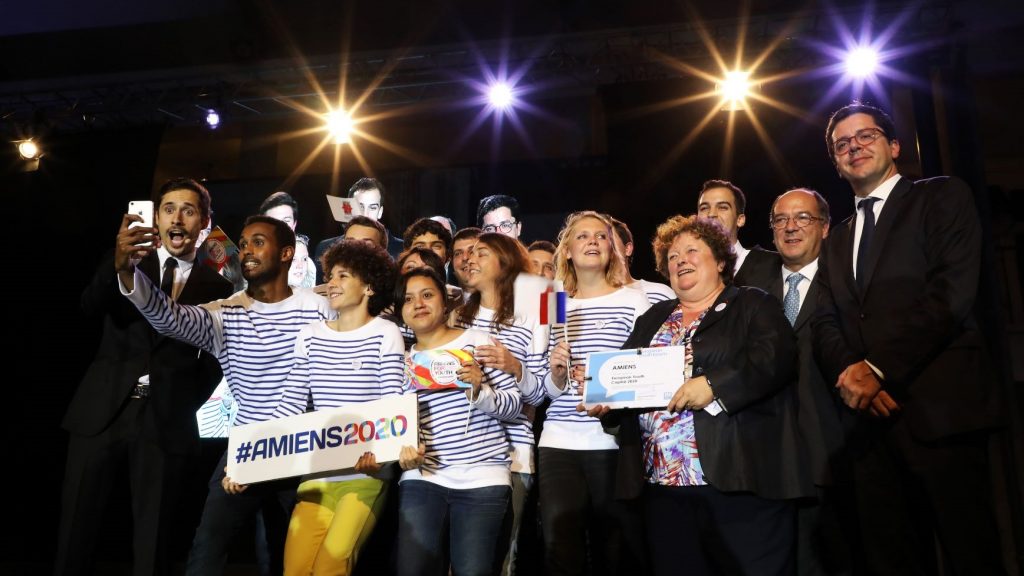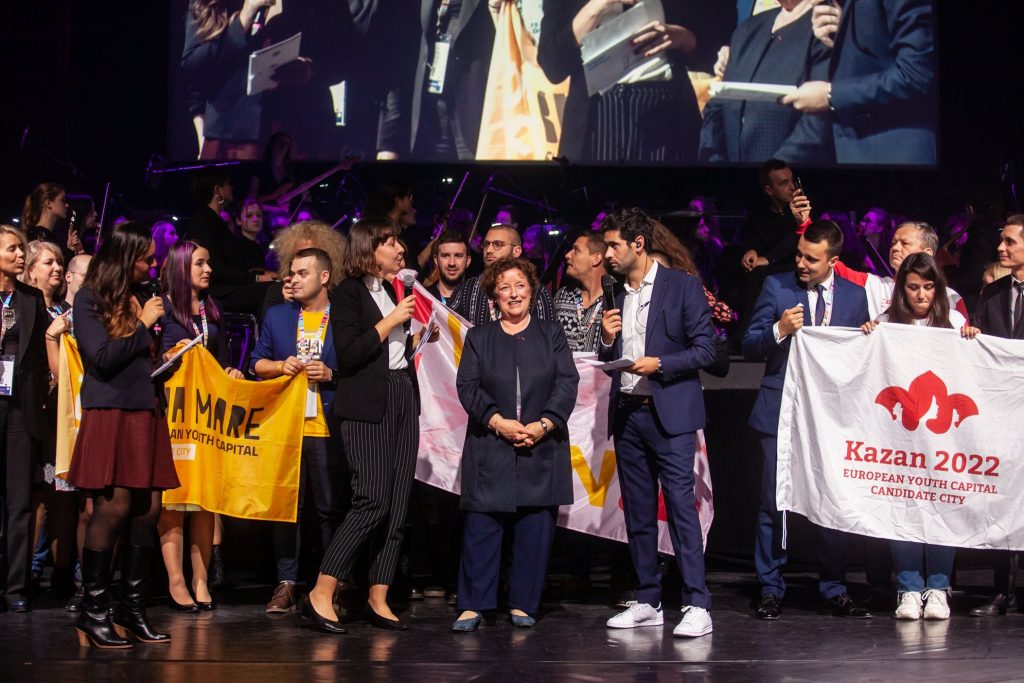I’m changing Europe!


As a strategic partnership that advances quality development of local youth work in municipalities across Europe, Europe Goes Local (EGL) understands how important it is to identify and promote diverse activities and initiatives of and to its members and partners in the hope of multiplying good practices, creating opportunities for growth and continuously elevating the quality of municipal youth work. Today, we sit down with Ivan Neirotti - Project Manager for the European Youth Capital title to discuss in detail the initiative and the impact it has had on young people and municipalities around Europe, as well as give us the latest update on the launch of the new call for applications for the title European Youth Capital.

Q: Tell us a bit more about the European Youth Capital Initiative. What are some of its goals, vision and how do they align with the values of the European Youth Forum?
A: In 2007, the European Youth Forum launched a project called “European Youth Capital” (EYC), consisting of a title awarded yearly to a different European municipality aiming at fostering change at the local level through the empowerment of young people, boosting youth participation and strengthening European identity. So far, 108 cities have taken part in the competition, with 12 cities holding the EYC title, and two more ready to do so - Klaipeda and Tirana, in 2021 and 2022 respectively.
With the EYC, cities are given the chance to showcase innovative ideas, projects and activities that aim to raise up young people’s voices and bring a new youth perspective to all aspects of city life, from urban mobility to infrastructure, from environmental protection to cultural and educational programmes and democratic policy-making.
The title is a real game-changer for cities, which are invited to re-think how they engage with and include young citizens in all different areas of decision-making.
At the European Youth Forum, we have always been working to guarantee that young people have equal opportunity to shape their social, economic and political life.
Thanks to the EYC, we are better equipped to bring forward our policy actions, carrying examples on how the empowerment of young people is crucial for their own personal, cultural and social development, and for the benefits of the society, as a whole. On the other hand, the EYC helps us to better understand which are the main challenges young people are facing, and how the cooperation between youth organisations and policymakers can prove to be an efficient way of generating change.
Q: What makes EYC different from other initiatives and what is the nature of its impact both locally and internationally?
A: The European Youth Capital (EYC) is a unique project in this field. While cities collaborate at the European level on youth issues, our project is the most visible way for local authorities to be recognised as the centre of young people’s empowerment and participation.
As in other similar initiatives linked to other policy areas such as culture, environment, innovation, sport (European Capitals of Culture, Innovation, Green Capital, Capital of Sport), our title allows cities to showcase their particular reality bringing forward good practices in relation to youth issues. Its uniqueness can be found in the fact that the title is built upon the mutual relationship between the municipal level and young people, through different youth organisations. The EYC brings them to work hand in hand, co-creating the application and delivering the programme through joint initiatives. This is one of the main achievements of the EYC, contributing to reduce the distance between the political level and young people thanks to the implementation of projects which then turn into concrete structures, as municipal youth support services, infrastructure available to young people, centres for youth organisations.
Coming to the second part of this question, the EYC experience undoubtedly has an impact both at the local and European level. The title provides cities with the opportunity to implement actions actively involving young people and highlighting the positive impact of empowering young people for the benefits of the whole community.
In terms of the benefits at a European level, the EYC provides cities with the chance of showcasing initiatives on a wider scale, catching the attention of other cities willing to become more youth-friendly, but also of EU decision-makers interested in learning more about good practices at the local level.
Coming back to its uniqueness, the EYC is not only a title that lasts one year, but it carries a long term impact on the city itself: it is a fundamental step of a process leading to a continuous engagement of young people in the all relevant aspects of the political, economic and cultural life. In addition, the EYC adds an external impetus: joining the network EYC cities have the chance to strengthen their ties, fostering good practice exchanges and mutual learning.

Q: In what way does EYC empower the young people, boost their participation and strengthen European values?
A: To apply and become EYC, a city needs one thing above all: involve the local youth. Since the beginning of the process, young people are at the centre of the stage. They work hand in hand with the municipality level, and this helps create mutual relationships and structured collaborations that will even last beyond the EYC. With the EYC, youth are given the opportunity to have a say on various topics, and actively contribute to solving focal issues important to young people and going beyond traditional areas such as education, volunteering etc. Giving young people the opportunity to be better heard by the political level leads to increased active participation, be it in the social, economic and cultural life, also allowing youth organisations to be better equipped to act at the local level.
An important share of each EYC programme is dedicated to the discussion of European and international-wide topics such as mobility of young people, youth rights, (European) democracy, and so on. The exchanges foreseen within EYC aim at allowing young people from the city to welcome their pairs from all over Europe, opening up new views and opportunities, especially for the most disadvantaged youth, who normally wouldn’t have the chance to experience this kind of exchange. City youth also gets the opportunity to welcome their peers coming from all over Europe, who are eager to learn and discover the initiatives launched within the EYC.
Q: How do you involve and work with local municipalities during the different phases of the EYC process?
Following their interest in becoming youth-friendly cities, municipalities can apply to EYC title every year. Throughout the selection phase, cities receive feedback from the jury and a pool of experts, with the scope of improving the quality of the application. As said above, this process brings benefits to all participants, also those cities that are not directly successful in their candidacy, but that will have the chance to build upon recommendations they received and improve the quality of life of young people in their community.
Regarding cities that are awarded the EYC title, they have around two years of preparation, during which they set up the governance process that will lead to the execution of the programme and all the activities related to the EYC. From the Youth Forum, we support them with our expertise and network, and we seek to ensure that young people are not only involved as a subject of the programme but that they are in the driving seat of the whole process.
On the international stage, we provide cities with the proper visibility needed to attract partners and different levels of decision-making, both during and after the title. Former EYCs continue to work with us and cooperate among themselves in a Network of European Youth Capitals. This enables cities to radically change how they implement youth policies and how young people are involved, thanks also to best practices exchanges at the European level.
Q: Talk a bit about the impact of COVID-19 this year and how it challenged the EYC process?
A: Unfortunately, the EYC is one of those projects that have been severely hit by the COVID-19 pandemic. Being an initiative that fosters exchanges, participation and active involvement, all this has come to a halt since March and onwards. Therefore, the current titleholder, Amiens EYC 2020, has been given a chance to extend their programme’s end to next year, with the majority of events being subject to postponement.
Klaipeda, EYC 2021, has done excellent work in the preparation for their year, despite the evident adversities, and we hope that next year the conditions will allow us to carry out all planned initiatives. Being aware of the existing risks, cities are ready to transfer part of the programme online that, even if not ideal, would guarantee the continued involvement of young people. Cities will also use their programmes to discuss and experiment ways to better solve current challenges the pandemic has brought to young people.
Furthermore, during this year, past and current Capitals and the European Youth Forum have come together and organised online activities (webinars) related to their reaction to COVID-19 pandemic, and how young people have provided fundamental support in the short-term response, helping elderly people and other disadvantaged groups of people to face the crisis. Cities have also shared experiences on how to better support youth at the municipal level in order to more efficiently face the huge challenges ahead.
Q: What does the EYC process look like? When is the new launch planned for?
A: Every year a call for EYC is launched around the end of October. Any local authority located in a signatory country of the European Cultural Convention (by the Council of Europe) can apply for the title.
The selection process runs throughout the whole year and with different steps, where shortlisted cities have the chance to improve their candidacy following suggestions by a pool of experts and the jury composed by an independent panel representing European organisations, institutions, NGOs. Finalist cities then meet the jury, who vote for a winner, announced at the EYC Award Ceremony, taking place in the month of November. We're very excited that this year's award ceremony for the winner of the 2023 title is happening on 25th November and will be broadcast live across Europe! Follow the Youth Forum's social media accounts to be the first to find out which city is the winner.
Most importantly, this long process is designed to support and benefit all cities, even those that are not awarded the title. All the innovative ideas proposed in the candidacy could be further improved also based on the feedback received throughout the year by our jury and experts. Therefore, we totally see the EYC as an initiative that has a positive impact on a larger number of cities than those becoming EYC.
The call for EYC 2024 has been launched on 30 October and it’s open until 17 January 2021.
For more information, please contact:
Ivan Neirotti
Project Manager - European Youth Capital
e-mail: ivan.neirotti@youthforum.org
Or check the social media channels of the European Youth Forum:
